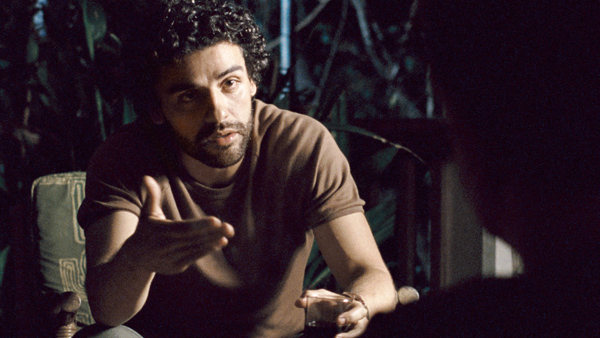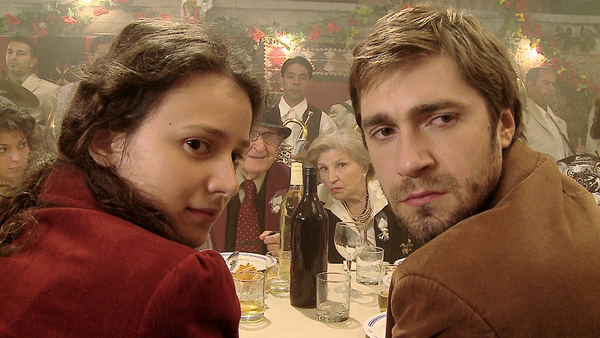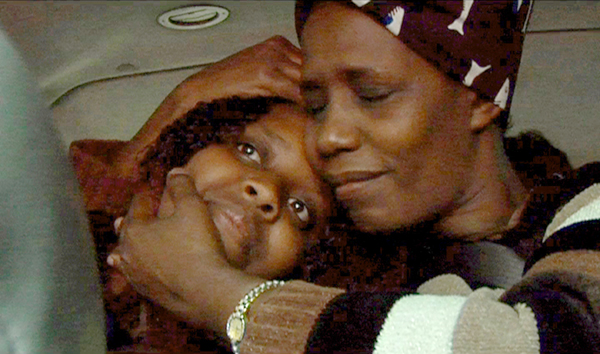|
Reviews of Recent Independent, Foreign, & Documentary Films in Theaters and DVD/Home Video

21ST HUMAN RIGHTS WATCH INTERNATIONAL FILM FESTIVAL The Human Rights Watch International Film Festival challenges empathy burnout with politically charged features and documentaries from 25 countries. Already presented from Canada to London, many of the films will continue to screen around North America during the year. FICTION The festival showcases outstanding fiction by renowned directors and strong casts, who bring passionate poignancy to their portrayals of issues that may be unfamiliar to Americans. The Balibo Conspiracy brings to gripping life what has been a cause célèbre of cover-up, denials, and persistent inquiries in Australia since 1975— the deaths of the young TV newsmen known as “The Balibo 5” and the feisty journalist Roger East Anthony LaPaglia, who gives his strongest film performance since Lantana. All tried to expose the brutality of the Indonesian invasion of East Timor that had the tacit approval of Australia and other governments. Based partly on Jill Jolliffe’s decades of investigative reporting, it was filmed with the input of East Timor locals at the sites where the actual events took place, vividly emphasizing the importance of bearing witness. The charismatic young independence leader José Ramos-Horta (who decades later won the Nobel Peace Prize and was elected president of the Democratic Republic of Timor-Leste) is played by the handsome Oscar Isaac in his third major screen role this year, after Robin Hood and Agora. The film unfolds through the memories of a woman proud to finally be able to testify, played with dignity by a first-time actress, Bea Viegas, who was inspired by her mother’s stories about the decades-long harsh Indonesian occupation. Backyard covers some of the same ground as two 2006 feature films that saw the scourge of hundreds of murders of women in Juarez, Mexico through the eyes of American investigative journalists—Kevin James Dobson’s wooden melodrama The Virgin of Juarez and Gregory Nava‘s angry thriller Bordertown. Director Carlos Carrera (The Crime of Father Amaro) takes a grittier perspective with a script by playwright Sabina Berman. Mexican police officer Blanca Bravo (a tough and slow-burning Ana de la Reguera) challenges the endemic corruption, which foments a misogynistic culture that casually tolerates an appalling array of abuse and murder of women. (Jimmy Smits pretty much repeats his oily serial killer from TV’s Dexter). The victims are realistically portrayed as three-dimensional women, particularly migrants from poor villages in the south. Engrossingly, the policewoman gets caught up in the cycle of revulsion and revenge that overtakes the frustrating justice system. With Moloch Tropical, director Raoul Peck turns from straightforward political docudramas in Africa (Lumumba, Sometimes in April) to his native Haiti for a dramatic portrait of a fictional, contemporary president unraveling while facing down a revolt. He draws on larger-than-life personalities from Haiti’s tortured past of democrats and dictators—the 19th-century King Henri-Christophe, the Duvaliers, former president Jean-Bertrand Aristide (plus scathing satires of celebrities who benefit from corruption.) The mesmerizing performance by French actor Zinedine Soualem as the intellectual but brutal President Jean de Dieu and the rock-hewn setting of the king’s citadel—an immense, shrouded in mist mountain-top fortress (filmed just months before the earthquake)—compensate for some turgid dialogue and very slow pacing.
DOCUMENTARIES The strongest documentaries take on hot controversies with a cool balance, which allow diverse points of view to have their say. All the films below are testaments to the filmmakers’ gaining access and trust with their subjects. Enemies of the People is a staggering tribute to keeping outrage and vengeance in check while finding the truth. Directors Thet Sambath and Rob Lemkin, for the first time, expose the perpetrators of Cambodia’s killing fields of the 1970’s as they explicitly describe and trace the orders and actions that killed millions (including Sambath’s family). Every weekend for over a decade, investigative journalist Sambath obsessively searches the countryside for killers who will talk to him, first in casual conversation, then on tape. Over the years, they feel that he is a man they can trust with their version of the truth—the peasants who systematically slit many, many throats to the middle-level bureaucrat who interpreted orders to thoroughly get rid of all possible enemies against the ruling Khmer Rouge, to Brother Number Two, who picked Pol Pot to be the face of the leadership. Just as Sambath is determined to find them and record their stories before it’s too late, these elderly folk know that time’s running out, whether to salve their consciences (only the lowest-level butchers seem to feel guilty) or to finally face prosecution. The directors will be awarded the Nestor Almendros Award for courage in filmmaking at the festival. The opening-night film 12th & Delaware is also a street corner in Fort Pierce, Florida, where a pro-life organization bought the house across from an abortion clinic to operate a “Pregnancy Care Center.” In between the two buildings, the group runs anti-abortion protests from dawn to dusk and tracks all who enter and leave. (Filmed the same year abortion provider Dr. George Tiller was murdered, these actions feel very threatening.) Directors Heidi Ewing and Rachel Grady, using the same absorbing cinema vérité style as in their Jesus Camp, go on the protest line and inside each address. They listen in on consultations with distraught women who have every possible explanation for their predicaments, though most enter the pro-life facility mistakenly thinking they are in the abortion clinic. The clinic is not run by a nonprofit like Planned Parenthood and does not counsel on contraception or other health care, but the husband and wife owners do provide comforting shoulders to cry on. None of the fervid protesters and pro-life counselors are parents themselves, and have no compunction in lying to their confused clients to minimize the fetal age shown in the free ultrasounds so that the women will miss the deadline for a legal first trimester abortion while they decide. For decades, I have had to walk down a similar block in my Queens neighborhood where protesters have stuck gory pictures in my and my children’s faces and aggressively taunted women entering a clinic, but this documentary, to be shown on HBO in August, allows for a quieter, more intimate look at the crossroads of constitutional rights in conflict. War Don Don dares to be fair to a war criminal. Battle hardened rebel commander Issa Sesay is charged with the horrors of the 10-year Sierra Leone civil war that mounted from 1996—murder, rape, mutilations, and child enslavement. But he was also the leader who came out of the bloodied forest to make peace. Lawyer Rebecca Richman Cohen’s first feature documentary gives equal time to the defense and the prosecution preparations at the joint United Nations/Sierra Leone Special Court in Freetown, as well as reactions from the victims—including players in an amputees’ soccer league. Offering more than the suspense of the decision and sentence, this thought-provoking film adds significantly to the continuing lessons learned from updating the Nuremberg trials, including those screened at last year’s festival. Carol Dysinger kept her camera objectively observing Camp Victory, Afghanistan in the northwest Herat Province for five years from 2005, where NATO forces advise the new Afghan National Army. As tours of duty come and go, month after month, martinet National Guardsmen, then officious Italian officers bark endless demands to the resentful Afghani recruits. And then, three years in, Colonel Michael Shute arrives from New Jersey and announces to the grizzled General Fazil Ahmad Sayar that he’s there to listen first. Everything changes, in the success of the training and in this absorbing, instructive film. Gradually, Sayar reveals to the patient and sympathetic Shute his 30 years of experiences as a professional soldier, including tough fights against the Soviet forces and the Taliban. Their unusual friendship continues with phone calls when Shute is back in the States and Sayar is still in his endless war. The American comes to the same realizations as ex-marine Zachary Iscol in The Western Front about the Iraq war—to win, people have to come first.
|



